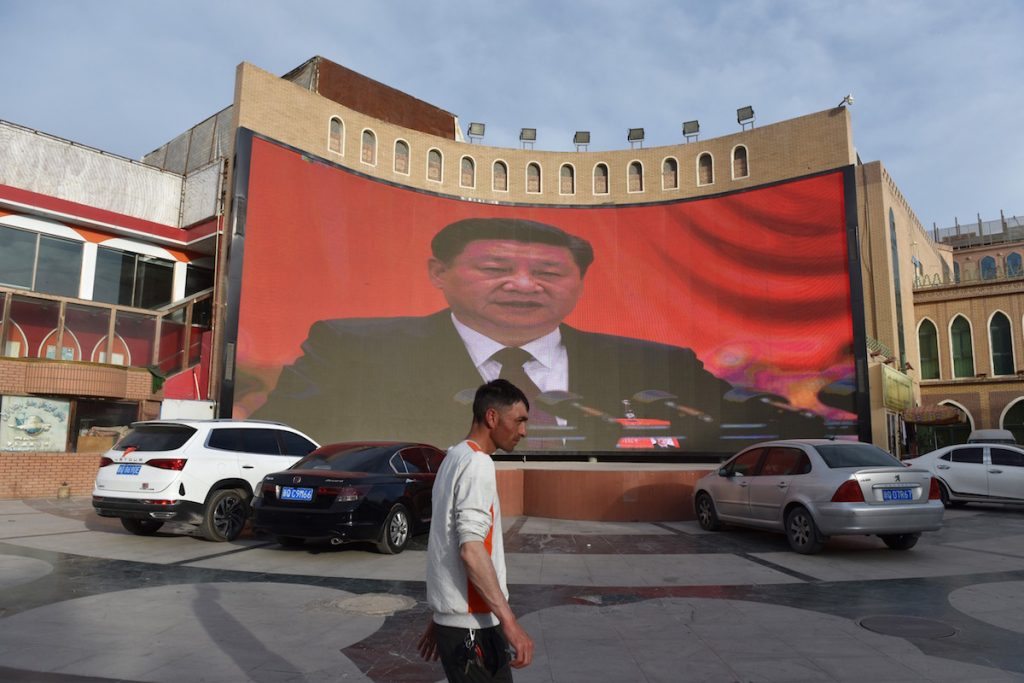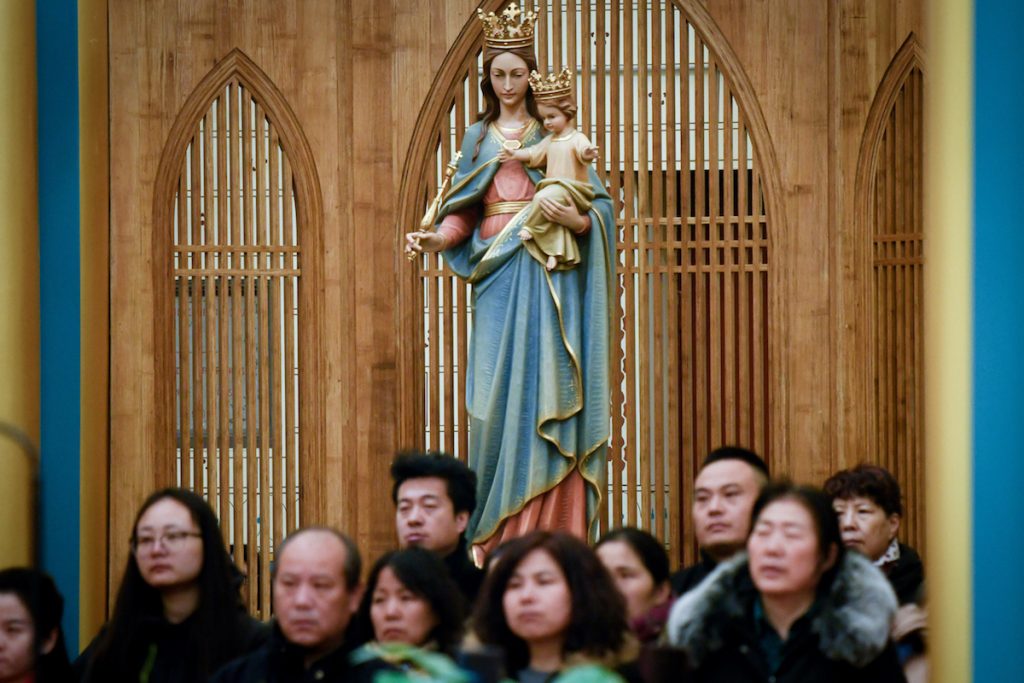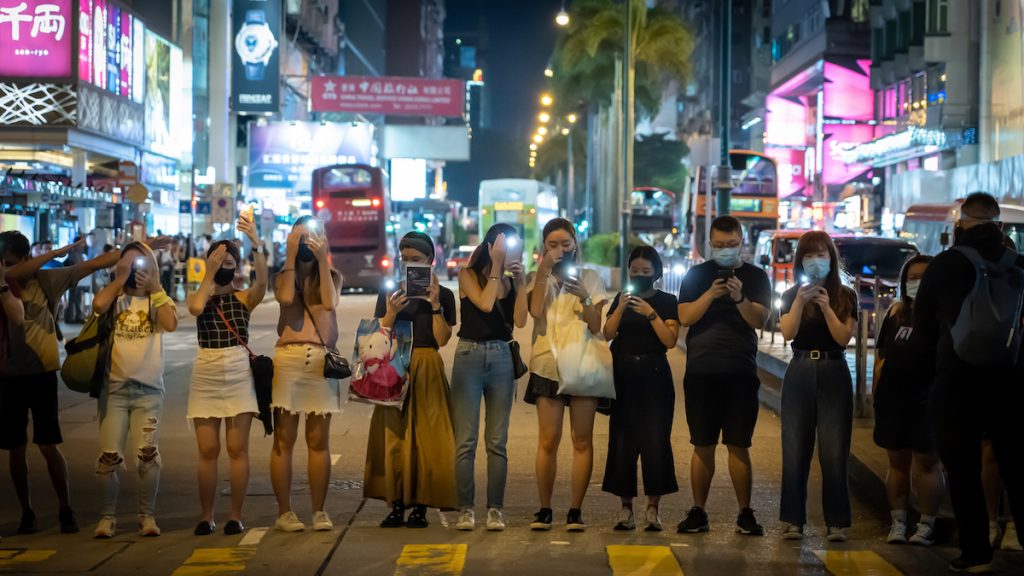In a scathing rebuke of what he calls China’s attempt to dismantle the global system of rights, the head of Human Rights Watch (HRW) warns that a “dystopian future” awaits if Beijing succeeds in reshaping the international order in its image.
Ken Roth, executive director of HRW, said that with its reliance on oppression to maintain control, “China’s government sees human rights as an existential threat,” and could likewise pose an “existential threat to the rights of people worldwide.”
“If not challenged, Beijing’s actions portend a dystopian future in which no one is beyond the reach of Chinese censors, and an international human rights system so weakened that it no longer serves as a check on government repression,” Roth said.
His comments accompanied the release of HRW’s 30th annual World Report 2020, which examines human rights, practices, and trends in nearly 100 countries.
The report was released two days after Roth was barred entry to Hong Kong on Jan. 12, a move which he said “deeply illustrates … Beijing’s deepening assault on international efforts to uphold human rights.”
“No other government is simultaneously detaining a million members of an ethnic minority for forced indoctrination and attacking anyone who dares to challenge its repression,” Roth said. “And while other governments commit serious human rights violations, no other government flexes its political muscles with such vigor and determination to undermine the international human rights standards and institutions that could hold it to account.”

Religious crackdown
Roth keys on both Beijing’s “nightmarish system” of surveillance and oppression, and the wholesale crackdown on religious freedom.
According to the HRW report, the Chinese government restricts religious practice to five officially recognized religions, and regularly subjects faith groups outside of its control “to police harassment, torture, arbitrary detention, and imprisonment.”
Most notable is the wholesale oppression of the 13 million Uyghur and other Turkic Muslims in the country’s western Xinjiang region.
“The government’s ‘Strike Hard Campaign against Violent Extremism’ has entailed mass arbitrary detention, surveillance, indoctrination, and the destruction of the region’s cultural and religious heritage. Credible estimates indicate that about one million Turkic Muslims are being indefinitely held in ‘political education’ camps, where they are forced to disavow their identity and become loyal government subjects,” the report read.
And despite China’s insistence these camps are “vocational training centers”, documents leaked in November 2019 showed that the 1-1.8 million people being detained were in fact being treated as top security prisoners.
In a further assault on the cultural identity of China’s Muslim minorities, reports of Beijing’s “Sanxin Huodong” or Three News campaign have surfaced, in which Beijing is targeting their home furnishings in efforts to further “Sinicize” the beleaguered minority.
That follows another 4 billion-yuan (U.S. $575 million) effort to “modernize” the region by targeting other aspects of Uyghur architecture and design, which HRW notes has resulted in authorities [demolishing] domes on mosques and [banning] the public use of Arabic script.”

Other religious minorities have been targeted, including Christians, amidst China’s efforts to purge Western influence and Sinicize the religion.
That process of Sinicization, which is intended to put all ethnic and religious minorities under the influence of Chinese culture and the Communist Party, has seen non-conforming pastors and congregants arrested, while one church in Henan province “was ordered to replace the Ten Commandments with quotes by President Xi [Jinping],” HRW reported.
‘Nightmarish system’ of surveillance
That oppression has in part been realized through a technologically-driven surveillance state.
“More than any other government, Beijing has made technology central to its repression. A nightmarish system has already been built in Xinjiang,” Roth said, adding it is “the most intrusive public monitoring system the world has ever known.”
That surveillance, in turn, extends beyond religious and political dissidents.
“In 2019, media reports revealed that a Hangzhou school had installed cameras to monitor students’ facial expressions and attentiveness, while a Nanjing company had required sanitation workers to wear GPS watches to monitor their efficiency,” HRW reported.
And with Chinese tech firms collaborating with foreign counterparts, HRW warns their global expansion, facilitated through “affordable equipment and services to governments and companies”, could further enable “the proliferation of mass surveillance.”

The further report covered a raft of human rights abuses and concerns including those involving Hong Kong, where the Chinese Communist Party “was especially keen to maintain a veneer of stability,” but the erosion freedoms in the city resulted in mass pro-democracy protests.
Roth, however, believes that despite the threat China currently poses to the international rights-based order, Beijing is acting not from a position of strength, but weakness.
“The motivation for Beijing’s attack on rights stems from the fragility of rule by repression rather than popular consent,” he said.
“Despite decades of impressive economic growth in China, driven by hundreds of millions of people finally emancipated to lift themselves out of poverty, the Chinese Communist Party is running scared of its own people.”
Watch this HRW video for more.








